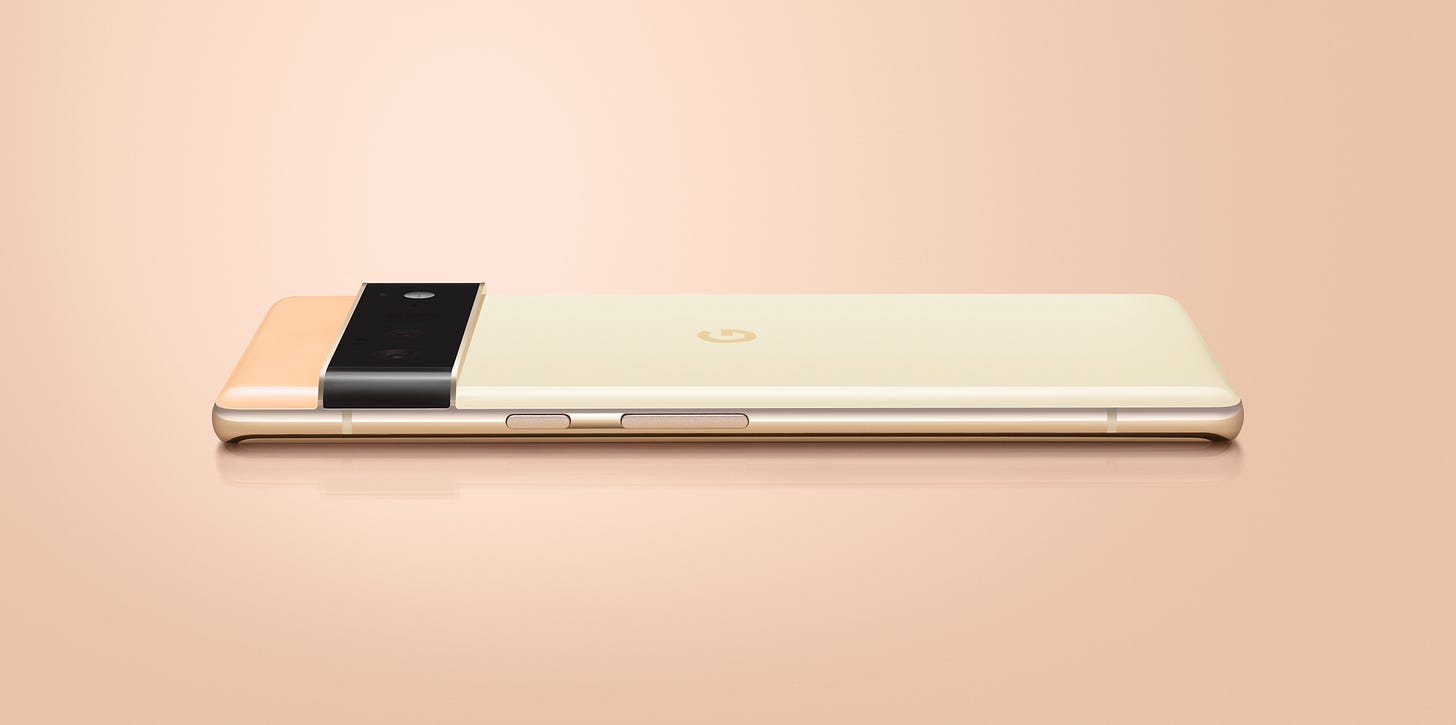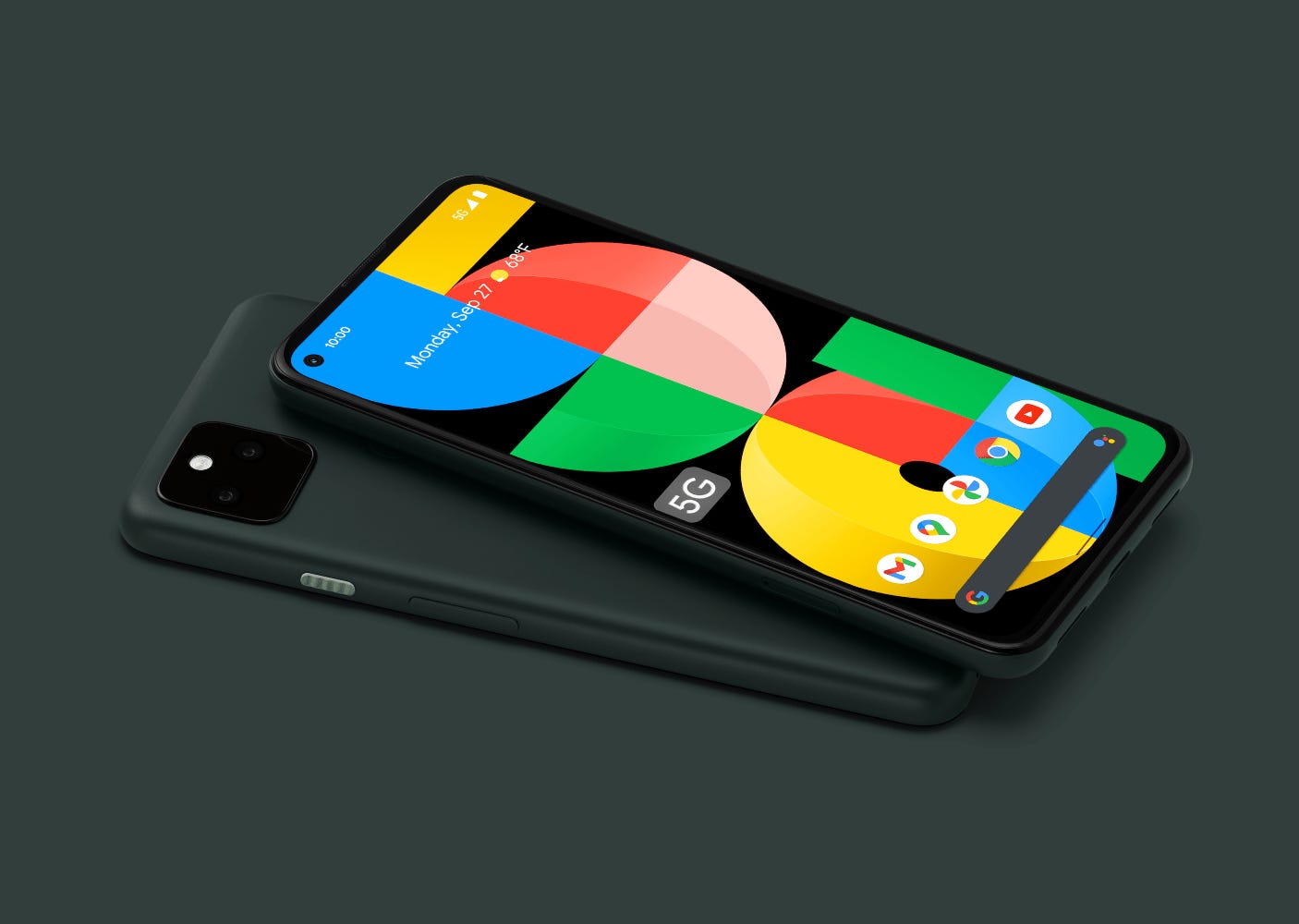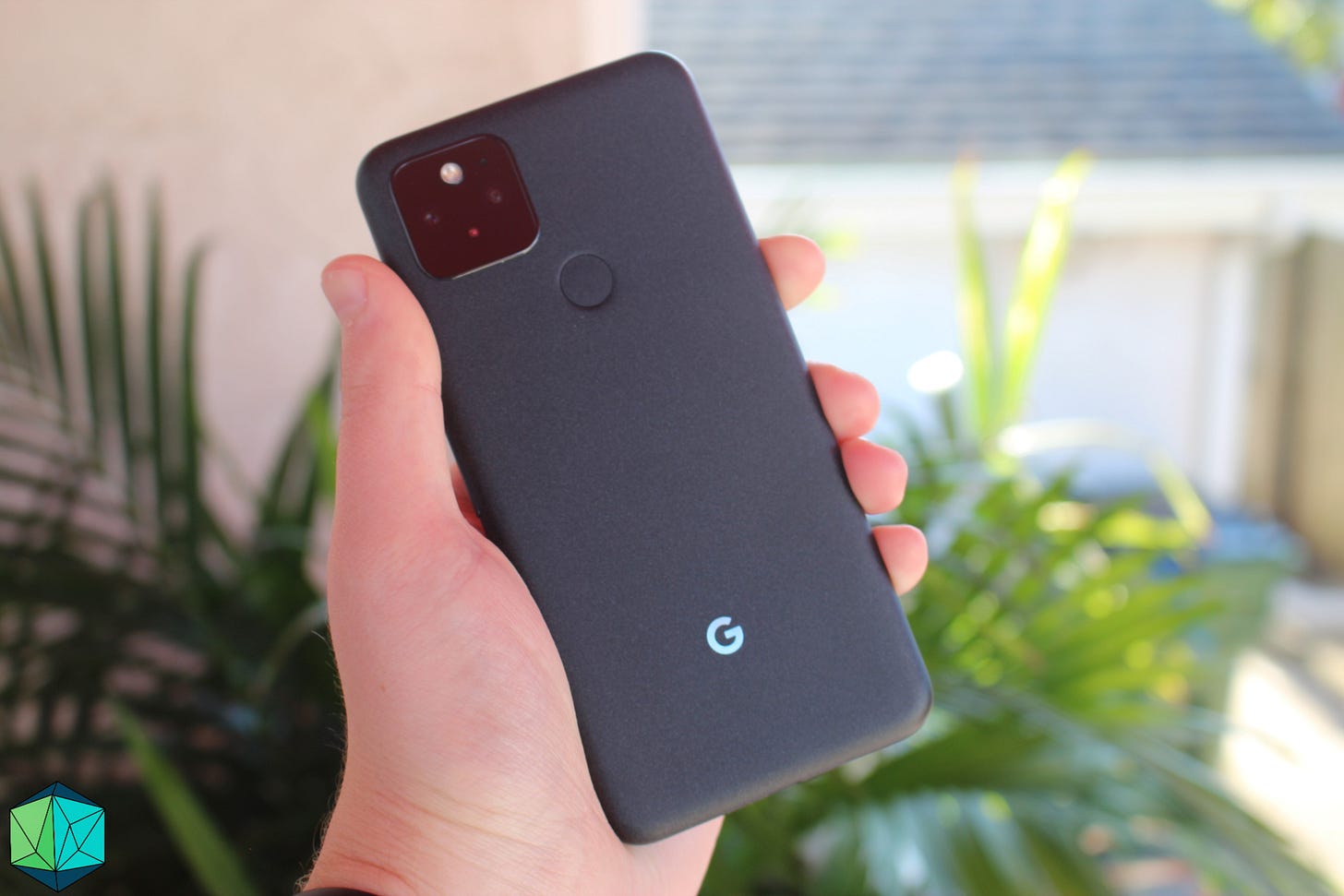📱Weekender: Google levels the field for the Pixel 6's grand entrance
Shipping a phone that's considered boring while canceling its last "flagship," the search giant is getting ready to go big or go home with its Tensor-powered smartphones.
Groundskeepers have done their job. Large piles of dirt kicked up by players in prior games have been sifted down. The astroturf has been patched to be rid of any inconsistencies. Fresh lines have been drawn, any litter has been picked up, and ticket holders await behind the closed gate. It’s finally kick-off time.
This is arguably a terrible analogy to use for Google getting ready to launch its Pixel 6, but it paints the picture of what the company’s trying to do. For years, the search giant has wanted a phone it could completely call its own. With the introduction of the Tensor processor, it looks like Google will finally get that, and to ensure both public interest and sales remain strong, the company had to fix its own lineup which it spent this week doing.
The introduction of the Pixel 5a was met by mixed reactions. Some were excited to see yet another phone “Made by Google” hit the market. Others (including myself) spotted the similarities between it and the Pixel 4a 5G from last year, leading to a consistent use of the word “boring.”
Quite frankly, that’s just what the 5a is side-by-side with the 4a 5G. It has the same processor, the same RAM, the same storage, the same cameras, and a very similar design. Its screen is only 0.14-inches larger, the software experience remains unchanged, and there’s still no wireless charging. You do get IP67 certification and a notably larger battery, but that’s usually not enough to prompt any year-over-year upgrades for average consumers.
That being said, this is a phone that had to happen. Every year, Google puts out a new A-series Pixel phone that attempts to ace the fundamentals of a good smartphone. It then capitalizes on its good software and cameras to edge out its competition. For the past three years, that’s the kind of phone that’s kicked off Google’s lineup and offered something for those who want to save a few bucks on their next phone. The Pixel 5a, complete with its $449 price tag, is the device that’ll fill this slot for the next 12 months.
Of course, in order to fill the slot, the slot must be emptied. That’s where the groundskeeping comes into play.
This week, Google decided to run dry any stock left it had of the Pixel 5 and 4a 5G. If you go to the Google Store right now, you won’t be able to buy either handset. Google very clearly wants the Pixel 5a to be the marquee phone it sells for the next couple of months.
Admittedly, it’s a shame to see the Pixel 5 and 4a 5G go so soon. They didn’t start shipping until late in October last year, and I gave them both very good reviews because they didn’t try to do anything crazy. They were simple, straightforward phones that aced the fundamentals and punched above their weight in the camera department. Plus, they came in at reasonable prices.
But they’re both too similar to the Pixel 5a to justify keeping around. The 5a pulls features from both phones (waterproofing from the 5, a big screen and specs from the 4a 5G), so it makes sense to shift focus to whatever the newer phone is.
Oddly enough, though, Google has decided to keep the Pixel 4a around. The $349 phone from Google, dating back to August of last year, is still available on the company’s website. Whether that phone will stay beyond the Pixel 6 series remains to be seen, but I remain skeptical.
Regardless, the presence of the 4a helps to fill out Google’s lineup. Now, they’ll have phones to offer people who might not be able to afford their next ones which are rumored to cost $1,000 and beyond. Having options is a very good thing, especially for a company that’s been struggling to get its feet off the ground with its smartphone lineup for years.
Google’s smartphone strategy is now clear: offer the Pixel 5a and 4a has budget offerings while leaning heavily into the flagship world with the Pixel 6 series.
That’s how Google will be framing these devices. The Pixel 6 and 6 Pro will unapologetically be the company’s high-end flagships that will have price tags to boot. I’ve been begging the company to do this for years, and that time has finally come.
Whether Google scores a touchdown with them remains unclear, but at least the play seems pretty enticing.






